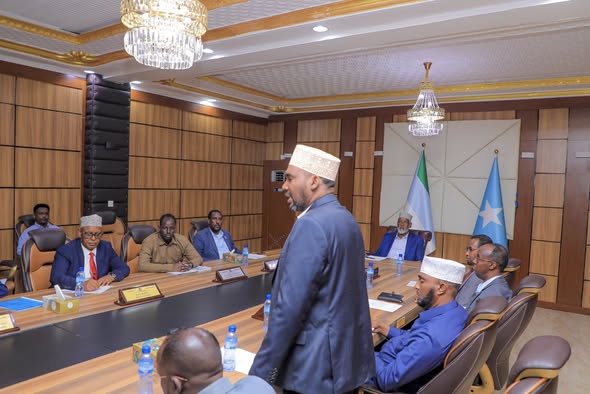Jubaland Cabinet endorses new Tourism policy as government moves to address security tensions and water shortages

The Jubaland Cabinet has approved a comprehensive Tourism Policy aimed at promoting the region’s cultural heritage, natural attractions, and economic opportunities, even as the government intensifies efforts to address ongoing security and environmental challenges in parts of the state.
In a detailed briefing during the Cabinet meeting, the Ministry of Internal Security provided an overview of the general security situation across Jubaland.
The ministry specifically addressed the clan-related conflicts that have recently affected Luuq district, outlining the steps being taken to restore peace and stability.
According to the report, government-led reconciliation efforts, in collaboration with community elders and local authorities, are underway to de-escalate tensions, promote dialogue, and ensure lasting peace among the affected communities.
The ministry reaffirmed the government’s commitment to protecting civilians and upholding the rule of law, emphasizing that security and unity remain top priorities for the Jubaland administration.
At the same meeting, the Ministry of Energy and Water Resources presented a report on the worsening water scarcity affecting several areas within the region.
The shortage has been attributed to the delay in seasonal rains, which has strained access to clean water for both people and livestock.
The ministry highlighted a number of key interventions already launched, including the construction and rehabilitation of boreholes, water reservoirs, and small-scale irrigation systems in drought-affected communities.
These initiatives are part of the state government’s broader strategy to strengthen resilience, improve water infrastructure, and support rural livelihoods.
In its submission to the Cabinet, the Ministry of Information, Culture, and Tourism unveiled the newly developed Jubaland Tourism Policy, which was formally approved after review.
The policy seeks to harness the region’s diverse cultural traditions, historical sites, and natural landscapes to boost tourism, generate employment, and attract both domestic and foreign investment. It also outlines strategies for sustainable development, preservation of cultural heritage, and collaboration with private sector actors and local communities.
Officials emphasized that the new policy marks a milestone in Jubaland’s long-term development agenda, positioning the state as a growing destination for cultural and ecological tourism in Somalia. The Cabinet praised the ministries for their proactive role in addressing key governance issues and reaffirmed the administration’s ongoing commitment to peace, development, and public service delivery across Jubaland.
